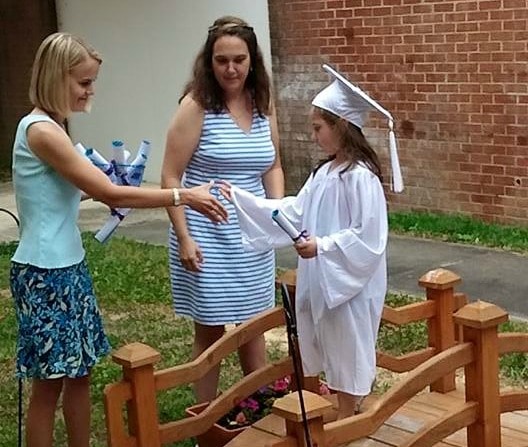By Guest Blogger Kelly Sipe, teacher and author
For a kindergarten teacher, starting the school year can be likened to sowing a new garden each year. As the seeds are planted in the soil of the classroom, you have yet to discover the ins and outs of what each one will need from you in order to grow, which ones will bloom first, and which ones will need careful attention. Rest assured that each seed, and subsequently each child, will bring forth something special and will add beauty to that kinder-garden.
Robert Fulghum took notice of all the life skills young children learn in their formative years when he wrote All I Really Need to Know I Learned in Kindergarten. In addition to that myriad of life skills, children are also expected to grow academically, master fine motor skills, navigate through social dynamics and build friendships. Once children enter formalized schooling, in addition to their classroom teachers, they will have specialist teachers (art, music, P.E., etc.), who will each present different teaching styles and will have their own classroom routines for the children to learn.
In as much as kindergarten is a colorful and engaging place that produces an abundance of growth, it stands to be noted that starting kindergarten is as significant as any major life transition. If your child comes home from school and expresses anxiety and/or fatigue please know that this is normal. It typically takes children a full 4-6 weeks to acclimate themselves to their new routine. Some children may express anxiety before the start of school, as they try to determine what to expect. Other children hit the ground excited and running, and it is only after a few weeks that they begin to show signs of anxiety or ‘settling-in’ behaviors. Quality teachers (and programs) pace their kindergarten curriculum with this in mind and are mindful of the variety of feelings and behaviors children can demonstrate at the beginning of the year.
Over the next few weeks expect that you will communicate frequently with your child’s teacher to make this a smooth transition for everyone. If your child’s school doesn’t already offer beginning of the year conferences, you can request one. These early conferences are incredibly valuable. They allow for the teacher to get to know the families and to learn about each child. It allows parents the opportunity to begin building a relationship with the teacher and to learn firsthand what the teacher’s expectations are.
It will also be important to attend your school’s Parents’ Night. The kindergarten year is full of wonder, excitement, growth, independence and friendship. It is one of the most important and special stages of your child’s life. In helping to make the start of kindergarten as smooth as possible, here are a few things you can do at home:
~ Limit after school activities. I recommend that play dates be limited for the first few weeks.
~ Maintain a regular and early bedtime.
~ Eat a good breakfast and send healthy choices for morning snack. Protein-rich snacks are a good choice!
~ Allow for quiet time every day. This should be a time for you and your child to talk about the day without the distractions of television, video games, etc.
~ Help your child to articulate his/her feelings so that they can better understand what they are feeling and experiencing.
~ Give lots of hugs and encouragement. Remain positive, even if you are anxious and overwhelmed yourself. As a parent, learning the routines of a new school can be daunting, especially if your child is expressing some anxiety.
~ Connect with a first grade parent. It will be helpful to speak to someone who has made this kindergarten transition with their own child in the not so distant past.
~ Although anxiety and fatigue are common and expected, these feelings are very real to your child. Allow your child to walk through these emotions, with adult support, so he/she will gain the confidence and the necessary tools they will need to make kindergarten the wonderful journey it is intended to be!
Below is a book list that speaks to ways in which we can equip our children to be successful in kindergarten and beyond…
~ The Blessings of a Skinned Knee by Wendy Mogel
~ Raising Lifelong Learners by Lucy Calkins
~ Einstein Never Used Flashcards by Hirsh-Pasek and Golinkoff
~ Raising an Emotionally Intelligent Child by John Gottman
~ Simplicity Parenting by Kim John Payne
Good luck to all the rising Kindergartners this year! If you’ve experienced this transition and can offer additional tips to other first-time Kindergarten moms, please share a comment below!
















